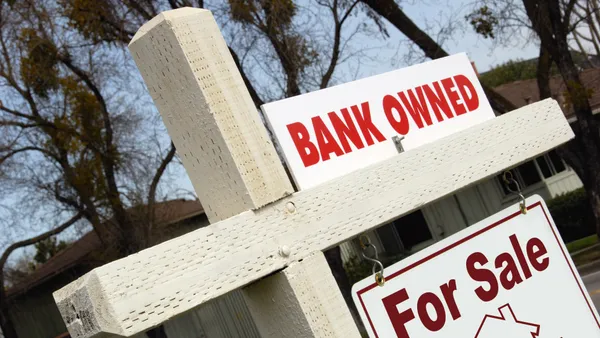Darren Fisk founded Denver-based Forum Investment Group in 2007 after he began investing in apartments four years earlier.
Though the broader market was under tremendous stress in 2007, Fisk built his firm into an owner of more than 8,880 multifamily units in over 17 states by 2018.
As time passed, Forum evolved. In 2017, Fisk turned the company into an investment management firm that buys, builds and finances apartments during different market cycles.
Right now, Fisk sees a “tremendous opportunity” on the debt side. While the company still owns 3,805 units in nine states, it scaled down between 2019 and 2021, selling 3,328 apartments.
“We just saw some trends that were going on during COVID where people were leaving some of these tertiary markets,” Fisk said. “That really focused Forum on these higher growth markets — think of the smiley face [Sun Belt] in the U.S. and a little bit of the upper Midwest.”
Here, Fisk talks with Multifamily Dive about the sales market, institutional buying and the impact of lower interest rates.
This interview has been edited for brevity and clarity.
MULTIFAMILY DIVE: What advantages do you get from having a debt fund and the ability to provide financing?
DARREN FISK: Having that capability gives us the ability to invest up and down the capital stack and throughout a cycle. Many of my friends who just do acquisitions or development are doing nothing right now, as you can imagine, even in the multifamily space.
When do you think the sales market will thaw out?
In the second half of last year, it was like a frozen lake in Minnesota. But we've seen bubbles coming up from underneath. You're standing on that ice, wondering when it will crack. Now, we're seeing the ice is starting to crack, but we haven't seen that capitulation.
Another unique thing we've seen is that most institutional equity is out of the market right now. So, the larger the deal size, the higher the cap rate.
Why are institutions holding back?
In my mind, they don't want to catch the falling knife. They'd rather be a little late to the game and see the rebound and the bottom-out happen. We have to hit bottom. We have to see stability in the Treasurys and where rates are for them to feel comfortable getting back in.

Now, there are other folks that are out there putting big distress funds together. It's all going to come down to access and credibility in those markets and with those brokers and your relationships.
How much do you think rates will fall this year?
I'm of the mindset that we've had such a large run up that the Federal Reserve is not going to also say, “Hey, let's drop our rates 100 basis points.” If they do, it's going to be, “Hey, let's start with 25 basis points.”
Will the Fed dropping rates automatically open up the sales market?
Yes and no, because we could be in a scenario where the Fed drops rates — and this is a great scenario for banks — and Treasurys stay high. Now, they can arbitrage their deposits and actually get paid for deposits. So that might be the worst-case scenario for apartments where you have a long end on the 10-year Treasury high rate end of the curve and low short-term rates from a Fed Funds standpoint.
I would also make the argument that if the Treasurys drop — I don't believe this is going to happen — you could actually start getting positive leverage. Our benchmark is always off Treasurys from the debt standpoint.
So borrowers will still need gap financing in some cases?
So I think there is going to be gap financing needed. If it's distressed, the real question is, how are these debt funds going to handle that? Are they going to take it to market or are they going to fire sale?
For banks, it is really tough right now. They're still working on funding through construction loans that are still out there. So I think there's been a pause in the transparency the Fed has provided these banks' balance sheets. So nobody really knows where that's going to head or lead until they open that back up.
Click here to sign up to receive multifamily and apartment news like this article in your inbox every weekday.











